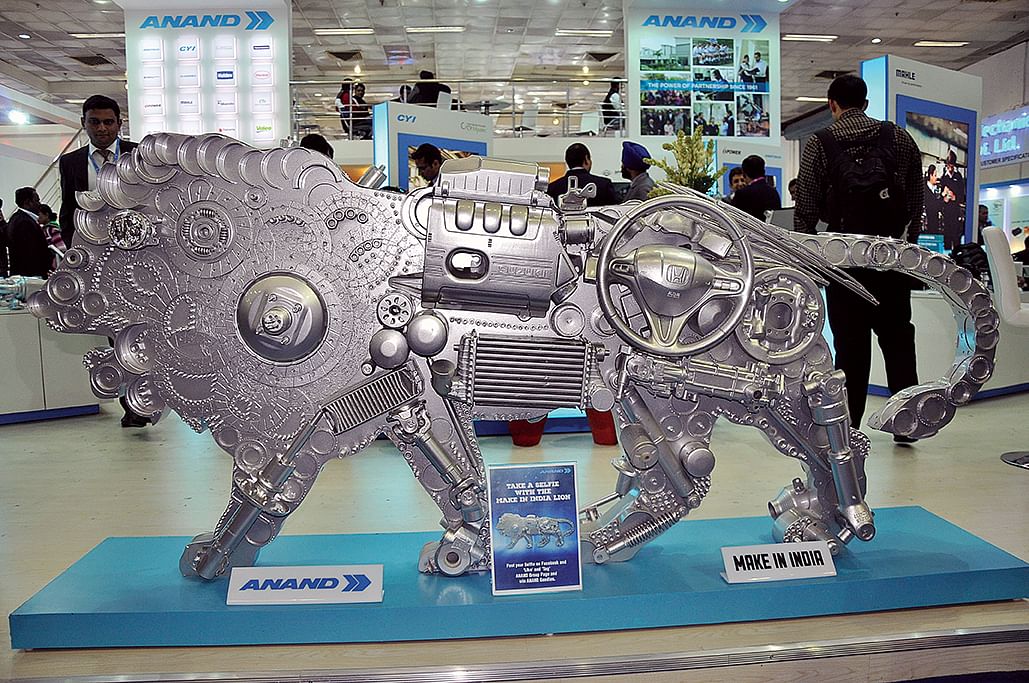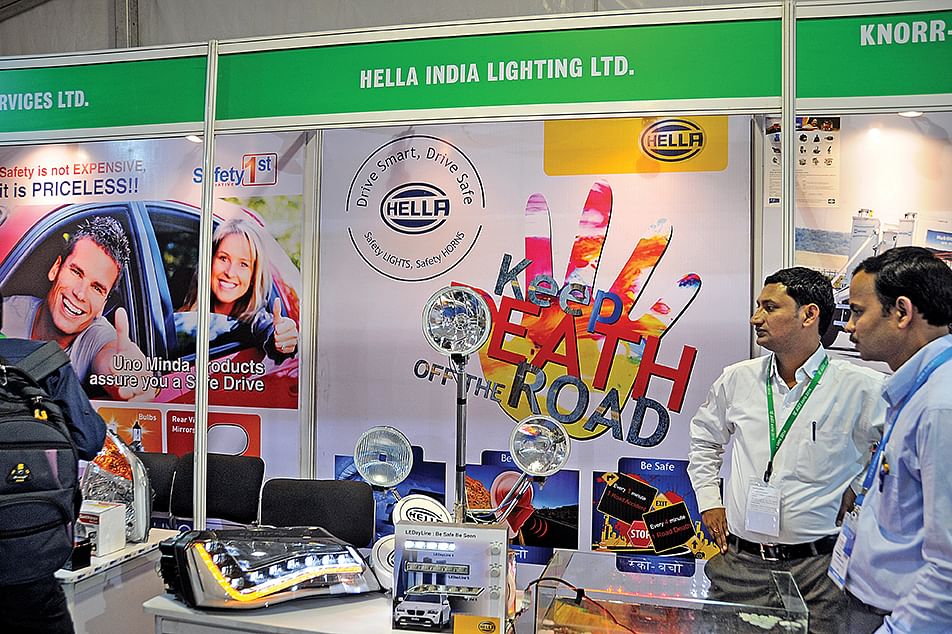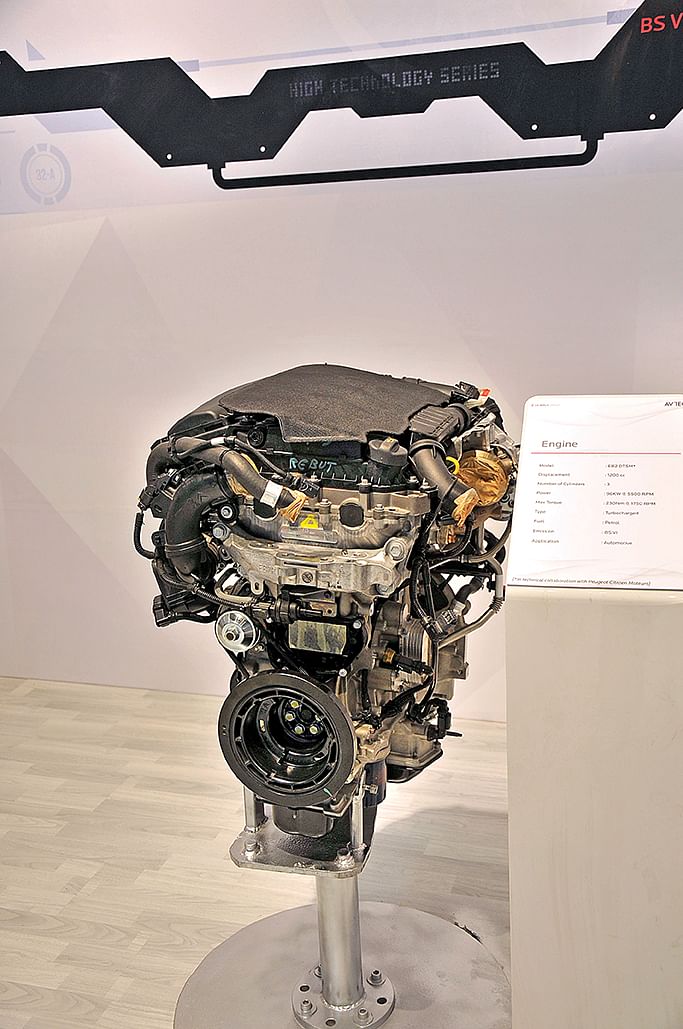Vinnie Mehta: 'If a nation aims to be a meaningful player, then it needs to invest'
The director general of the Automotive Component Manufacturers Association of India (ACMA) explains how ACMA members are identifying the right areas of future investments.
The director general of the Automotive Component Manufacturers Association of India (ACMA) on how ACMA and its members assess this situation of preparing the industry to command technology leadership in future.
Following is an excerpt from the interview conducted by Amit Panday.
What are your thoughts on the industry’s level of preparedness in terms of the necessary skill sets that are required to service the customers in the aftermarket once the incoming regulatory norms are implemented?
Honestly, I think there is a long way to go on that front. Talking about the vehicle servicing and the aftermarket, I think that will undergo a drastic change much more rapidly than it has been in the last few years.
The new set of vehicles (with BS VI-compliant engines, mandatory safety features – airbags and others) cannot be repaired without specific tools in the unorganised part of the aftermarket. That would require sophisticated diagnostic tools and software to detect the issues in the vehicles. So this could see a very fast emergence of the newer independent aftermarket, service and the distribution chain.
This will also bring about a reform in the local aftermarket, which is predominantly at the retail level a very unorganised market, towards an organised setup.
Secondly, the independent aftermarket will come under very severe pressure as the OEM-authorised service outlets are naturally expected to upgrade themselves with the latest equipment necessary to service the BS VI-compliant vehicles in the future. Probably. a lot of that business will shift to the OEM-authorised service centres.

From metals to engineering polymers to new-generation materials for auto, the Components Show 2018 showcased everything.
On the other hand, for the independent aftermarket outlets, this leads to a dire need for investing in the latest diagnostic tools and software to match the service complexities of the vehicles in the near future.
We have seen that an increasing number of homegrown component manufacturers are partnering international suppliers for technology tie-ups or technology transfers in lieu of the anticipated demand for critical parts in the near future. Would you acknowledge this trend among Indian component suppliers?
I think a large part of such tech tie-ups and tech partnerships happen to suit the comfort of the customers. If you were to look at the passenger vehicle market, which has a very sizeable presence of the companies from Japan and South Korea in India, yes you would find many Indian component suppliers joining hands with the Japanese or Korean suppliers to match the suitability or requirements of the customers. Many times these partnerships are even facilitated by the customers themselves.
However, I think for certain sections within the industry, such as for the two-wheeler industry, where we are the largest in the world, it’s time that we take the lead in technology and innovation too. If you are a world leader in a certain product category but you aren’t a technology leader in the same then it contradicts itself, and it does not reflect well globally. It also puts a question mark on the preparedness for the future. So, I think that is a moot question that the industry needs to answer.

The Safer Drives pavilion at the 2018 Auto Component Show offered virtual reality activities to further drive home the message of road safety in the country.
Similarly, the size of the Indian commercial vehicle industry is one of the largest globally. It must command a similar technology leadership among the world markets.
How does ACMA and its members assess this situation of preparing the industry to command technology leadership in future? While the Indian Tier 1 suppliers look at their OEM customers and international suppliers for technology transfer, the Tier 2 and 3 suppliers expect a similar handholding from the Tier 1 companies. How are ACMA members identifying the right areas of future investments?
ACMA has been largely focusing on efforts around the manufacturing processes undertaken by the component suppliers. We run excellent cluster programs such as the ACMA Center for Technology (ACT), which has made an intervention in more than 1,000 companies and has helped them upgrade their practices to the ones followed globally.
However, I acknowledge that we have not made a meaningful intervention on the front of technology, product development and innovation. We do have the cluster programs such as the new product development cluster program or the new product design and development or innovation cluster. But these programs are very recent and are less than two years old. So, of course, while we have not touched a large number of companies, the momentum is being built to address the same.
It is known that in India we do not have the culture of innovation and R&D. My understanding is that the Indian auto component industry invests less than 1 percent of its annual turnover on R&D whereas the global average is between 5-8 percent. It varies, depending upon whether we are talking about Germany or the Scandinavian countries. This is evident when you look at the number of patents filed in India or the quality of research projects done in the Indian institutions or the industry-academia linkages, which is often talked about. It is only from the last year (2016-17) that we are finding people talking about centres of excellence within automotive and automation in the auto industry. We must give the momentum a chance.

The road to BS VI was among the overarching themes at Auto Expo 2018. Above: Avtec's BS VI engine exhibited at Auto Expo 2016.
On the other hand, we must not forget how young the Indian auto industry is when you compare it to the Triad nations. Without being defensive, I can say that getting into R&D requires a cultural shift. Meanwhile, the political environment has also not been supportive of the R&D and innovation. At least for the last five years at ACMA, we have been requesting the government for a technology development fund, we have been asking for incentives. So in such an environment, which does not encourage innovation and R&D, when you suddenly ask for huge investments, whether it is for BS VI emission norms or electric mobility or locally developing and supplying safety critical items, very less excitement remains apart from the market(s) that you have to offer. Not to forget, the competition in this scenario (for local players) is with the multinational companies coming from the developed world.
So it’s definitely going to be a challenge. But there are companies who have been able to get breakthroughs. Overall, I think if a nation (and the industry) aims to be a meaningful player, then it needs to invest as there is no escape. The competition on the next frontier will be on the front of technology and not on the conventional manufacturing processes.
(This interview was originally published in the 1 February 2018 issue of Autocar Professional)
RELATED ARTICLES
INTERVIEW: "EV Demand is Rebounding both in India and Around the Globe" - JLR's Rajan Amba
Jaguar Land Rover India MD Rajan Amba discusses the India–UK FTA, the company’s manufacturing plans, the upcoming Panapa...
TVS Celebrates 20 Years of Apache, Eyes Premium and Global Push
Marking two decades of its flagship performance brand, TVS Motor unveiled special anniversary editions on Saturday while...
Q&A: Mahindra's Nalinikanth Gollagunta on Upcoming Festive Season, 'Bold' Design Choices
Automotive Division CEO Nalinikanth Gollagunta says mid-teens growth is achievable with Roxx ramp-up, BEVs, and a resil...






 03 Apr 2018
03 Apr 2018
 9251 Views
9251 Views





 Prerna Lidhoo
Prerna Lidhoo


 Darshan Nakhwa
Darshan Nakhwa


